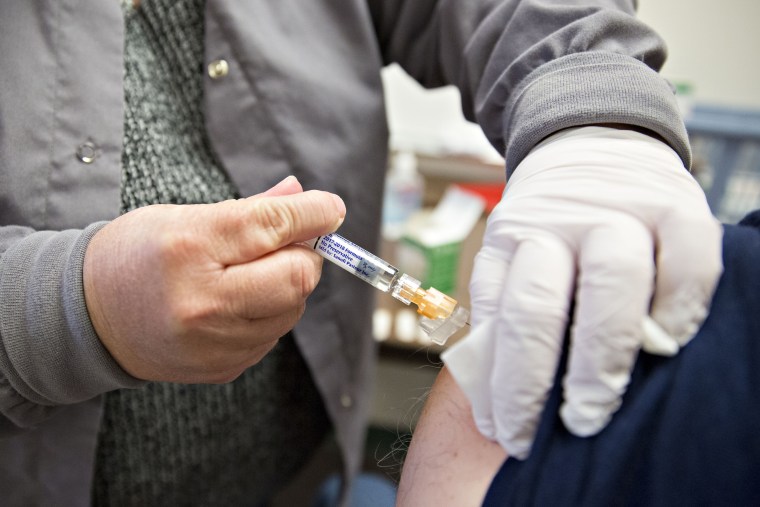Flu seasons are notoriously unpredictable, but there are already clues that the upcoming season may be especially difficult.
Flu season in the Southern Hemisphere can be an indication of what's to come in the Northern Hemisphere, and the recent flu season in Australia, where winter has just ended, arrived early and with a vengeance. A particularly virulent flu strain, H3N2, dominated.
What's more, a pediatric flu death has already been reported in the U.S. — a 4 year old in California who had underlying health problems.
"We should never forget that the flu still kills," Dr. Cameron Kaiser, a public health officer for Riverside County, California, said in a news release announcing the death.
"A death so early in the flu season suggests this year may be worse than usual," Kaiser warned.
The Centers for Disease Control and Prevention estimates that last year, there were 37 million to 43 million flu illnesses in the U.S., and 36,400 to 61,200 flu-related deaths.
Last year's flu season ran from Oct. 1, 2018, to May 4.
Is it too early to get the flu vaccine?
No. Doctors say people should get the flu vaccine now, and certainly before Thanksgiving.
"The concern with delaying it is that some people who might have the opportunity to get vaccinated now may not have that opportunity later," said Dr. Robert Atmar, a professor of medicine and an infectious disease expert at Baylor College of Medicine in Houston.
"The most important thing is for people to get their flu vaccine, and get it before the epidemic starts," he said.
Most healthy people who get the shot in September can expect some protection through the spring. But older adults may want to schedule their vaccination for sometime in October.
"There is a concern that some older people may have their immunity wane simply because their immune system is more frail, less robust," Dr. William Schaffner, a professor of preventive medicine and infectious diseases at Vanderbilt University Medical Center.
Flu activity usually picks up in October and November, peaks around February, and can last well into the spring months. The CDC recommends everyone over age 6 months be vaccinated against the flu, especially expectant mothers.
Pregnant women who get the flu tend to have complications similar to those over 65. The shot offers protection for both the woman and her unborn baby.
It takes about two weeks to build immunity to influenza after getting the vaccine.
But even then, the flu vaccine offers only partial protection. Last year, the vaccine didn't work well: Its overall effectiveness was 29 percent.
Doctors blamed the poor match on a surprise second wave of H3N2 flu activity late in the season.
Why should I get the flu vaccine even if it doesn't work well?
There is plenty of evidence that the vaccine can ease the severity of the flu if you do get sick. Doctors say people who get the vaccine generally don't feel as sick if they do wind up with the flu, and they're less likely to develop complications of the virus, including pneumonia and death.
"Partial protection frequently gets overlooked, and we shouldn't forget that," Schaffner said. "Because it’s those complications that do you in."
What's more, research published last year found the risk for heart attack or stroke increases the month after a person is diagnosed with the flu. The mechanism is likely one of inflammation and stress in the body caused by the virus.
A specific flu shot call Fluzone may be best for older adults. "For people over age 65, there is evidence that the high-dose vaccine will provide greater than a standard dose vaccine," Atmar said.
Fluzone and the standard dose shots available this year include protection against several influenza strains, including H1N1 and H3N2.
FluMist, the nasal spray favored by kids and anyone else averse to needles, is also back this year.
Follow NBC HEALTH on Twitter & Facebook.


